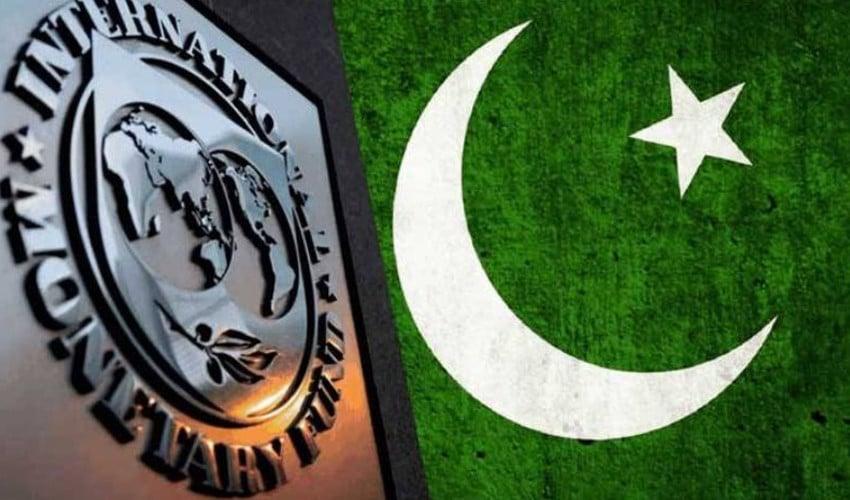Islamabad:
In a diplomatic embarrassment to India, the Executive Board for the International Monetary Fund on Friday approved two packages worth $ 2.4 billion, including a new facility of $ 1.4 billion to mitigate climate challenges.
The global lender approved $ 1 billion to another loan tranche in the extended fund facility and sanctioned a new $ 1.4 billion resilience and sustainability facility (RSF), the Pakistani authorities said. The IMF board approved the offers by rejecting India’s unjustified objections to the financing package. New Delhi tried in total ignoring the IMF’s charter to politicize the balance of the support facility.
Pakistan’s economic team, Finance Minister Muhammad Aurangzeb and mainly its secretary financing imdad Ullah Bosal, put a lot of work in keeping the program on track after the first setbacks. Deputy Prime Minister Ishaq Dar used his good terms with Pakistan Peoples Party to meet some pending conditions, including the introduction of the Legislative on Agricultural Income Tax in Sindh and Balochistan.
The IMF would immediately release the second loan tranche of $ 1 billion under EFF, while $ 1.3 billion would be paid out over a period of the next 28 months. With the approval of the second tranche of $ 1 billion due to Pakistan’s better fiscal performance, the total payments under the EFF would reach out to $ 2.1 billion.
Tranche would again increase Pakistan’s gross official currency reserves for $ 11 billion. The better than expected performance of foreign transfers has also helped to maintain the reserves in double digits despite having made some major foreign debt repayments.
Prime Minister Shehbaz Sharif showed satisfaction over the approval of $ 1 billion tranche while condemning India’s dirty tricks to block the approval.
The IMF did not provide a service to Pakistan by approving these loans as it is the fund member that the country has the right to apply for a program. Islamabad first qualified for Tranche after meeting harsh conditions that the IMF had set, including putting more burden on the people.
The offers were reached after both sides made some adjustments in the 25th expanded fund facility (EFF), including lowering tax targets in absolute terms, which set a new deadline to trim Pakistan Sovereign Wealth Fund and open the economy of foreign companies.
India made an unclear step to block the approval despite having only 2.7% voting rights, the second defeat of less than 72 hours after losing five fighter jets to superior Pakistan Air Force.
The sources said that Indian representatives during the board meeting tried to block the approval by arguing that Pakistan was a usual borrower. The Indian representative claimed that either the design of the IMF programs was ineffective or that there were problems with the monitoring.
However, the IMF approved both parcels on the grounds that Pakistan successfully met all the conditions laid down by the board of directors to qualify the other loan trafficking.
Pakistan will also impose on Carbon Levy as part of the conditions of the new program of $ 1.3 billion with effect from July this year and increase the fees for water consumption from next year as part of the conditions for the new facility.
About two months ago, the IMF team had reached an agreement at staff level with the Pakistani authorities on the first review of the 37-month extended scheme under EFF, and on a new 28-month scheme under the IMF’s resilience and sustainability facility (RSF) with a total access in the 28 months of about $ 1.3 billion.
Pakistan would continue fiscal consolidation to reduce public debt while creating space for social and development spending and reducing congestion out of private investment. Pakistan also refrains from increasing current expenses beyond the budgeted, indicating that additional grants cannot be issued.
The IMF has projected Pakistan’s economic growth for this financial year of 2.6%, but the inflation rate forecast has been reduced to 5.1%. For the next financial year, the IMF see economic growth of 3% and inflation at 7.7%.
The IMF has acknowledged financial stabilization, but said there was still risks to Pakistan’s economy. Among the risk is potential macroeconomic political slides-driven by pressure to facilitate policies-together with geopolitical shocks at raw material prices, tight global economic conditions or rising protectionism can undermine the severely won macroeconomic stability.
The IMF’s new climate facility is intended to scale up climate reform efforts to reduce vulnerabilities to natural disaster risks and to build climate understanding. In return for the loan, Pakistan has committed to strengthening public investment processes across all government levels to prioritize projects that improve disaster resistance, Porter said.
The government will also improve the effectiveness of scarce use of water resource, including through better price mechanisms, he added.
It will improve intergovernmental coordination of disaster finding; Improve information architecture and the transmission of economic and company -related risks; And promote green mobility to mitigate significant pollution and negative health effects, the IMF said.



